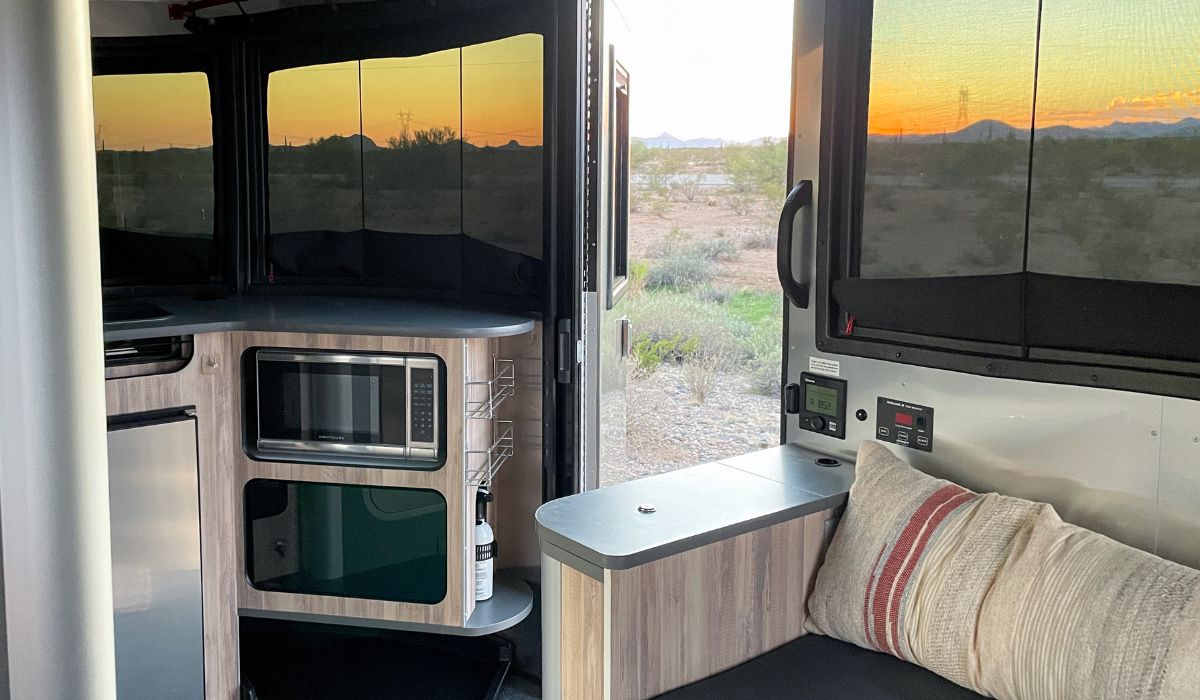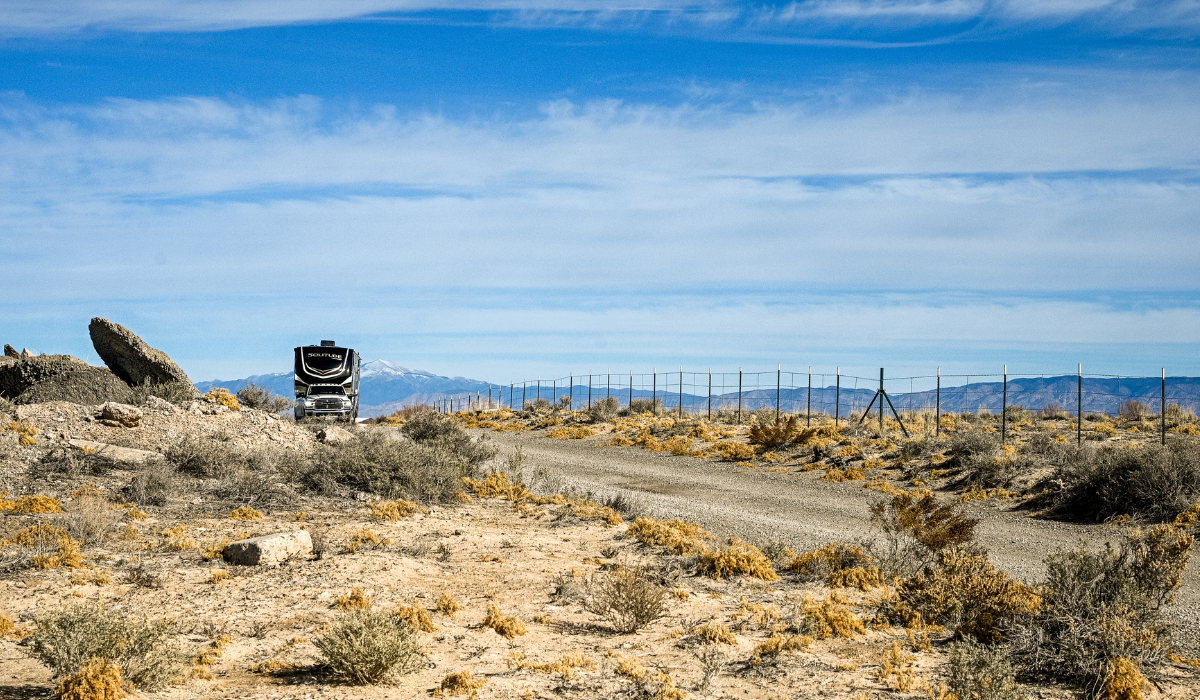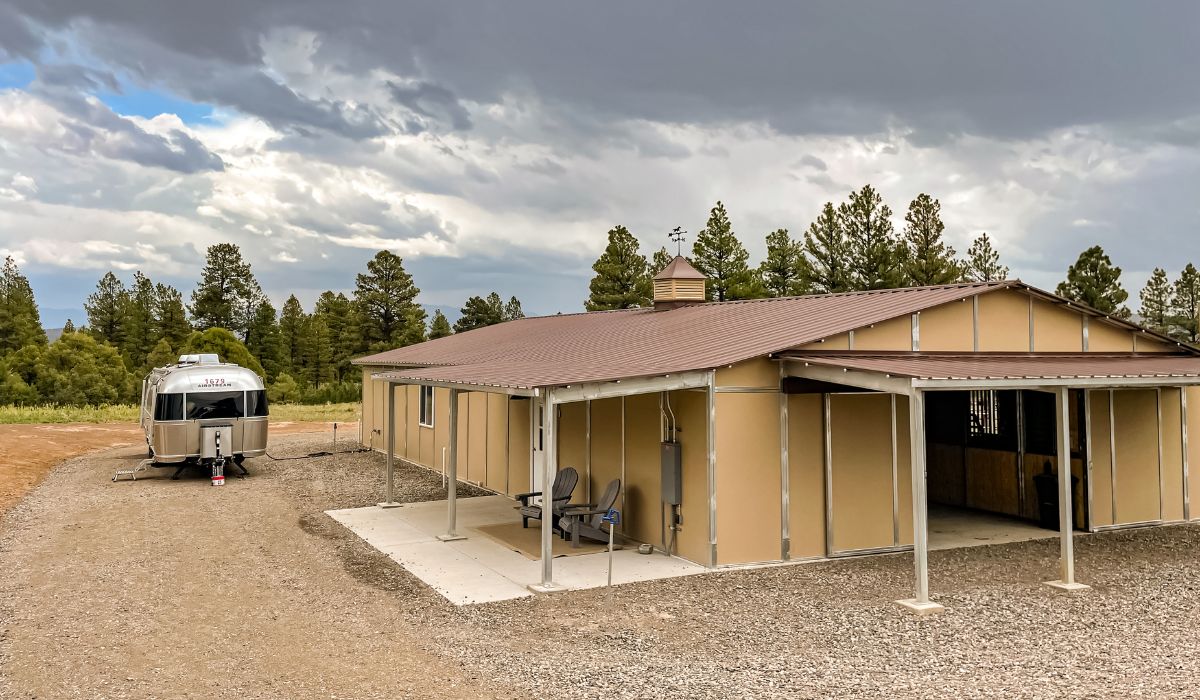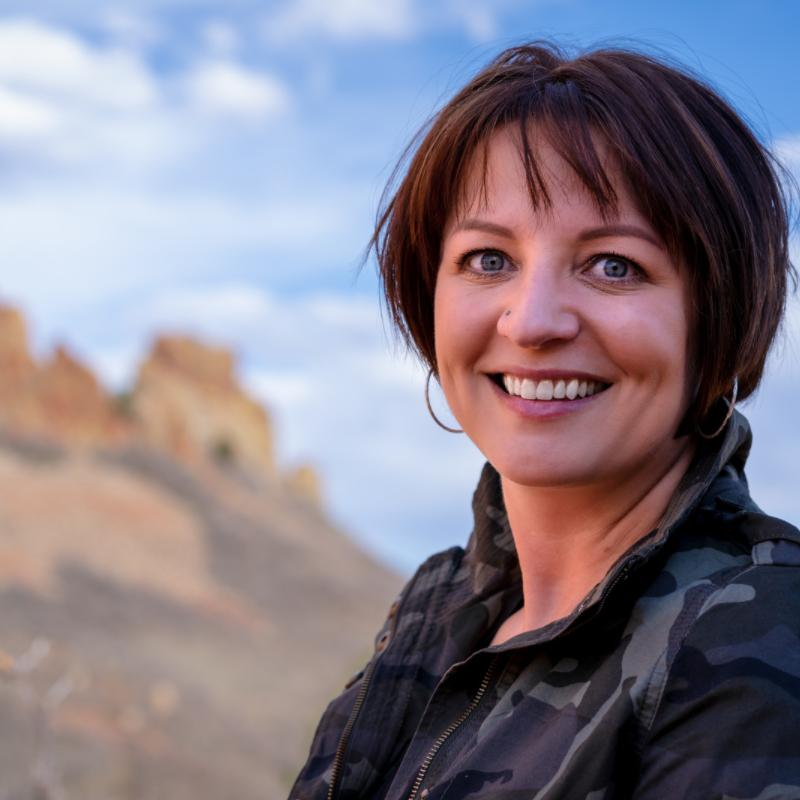![What Is Boondocking? [And What It's Not]](https://ghost-cdn.rvezy.com/2024/06/What-is-boondocking-1.0.jpg)
Do you want to go boondocking but are unsure what it is or how to boondock?
We know the name boondocking sounds complicated, but thankfully, the act of boondocking itself is simple.
This blog post defines the word boondocking, offers tips for planning a remote camping trip, and compares boondocking to other types of off-grid camping. It also answers the RV community's most-asked questions about boondocking.
By the end of this article, you'll be ready to know all about boondocking and if this camping style is for you.
What is boondocking?
Boondocking is free camping on public land or remote locations without access to electric, water, and sewer hookups. Going boondocking requires you to rely solely on your RV's onboard electricity, water, and sewer because you won't have hookups or access to campground facilities.
Did you know boondocking and dry camping are different? Visit our frequently asked questions about boondocking below to learn the difference.
I want to go boondocking. What kind of RV do I need?
You can boondock in any type of RV, such as a travel trailer, campervan, pop-up camper, fifth wheel, truck camper, or even a Class A motorhome. You can even boondock in a rooftop tent if you have everything you need to provide for yourself and still recreate responsibly.

How do I find free boondocking spots in the U.S. and Canada?
The best way to find boondocking locations is to use a website or app that provides camping coordinates, recent reviews, and contact information. If you're boondocking on public land or state land and trust land, it's always a good idea to verify road conditions and fire restrictions before you head out.
Boondocking and free camping apps and official public lands websites:
- OnX
- iOverlander
- The Dyrt
- Freecampsites.net
- Overnight RV Parking (Roadtrippers)
- Sēkr
- Vanly
- Allstays
- Boondockers Welcome
- Bureau of Land Management
- U.S. Forest Service
- U.S Fish and Wildlife Service
- Federal Crown Land Canada
Want to know more? Find out how to camp for free in the U.S. and Canada.

Is boondocking safe?
Boondocking in remote areas is safe if you plan and prepare to camp off the grid. Here are some tips for safe boondocking:
- Research your location: Ensure the area is legal and safe for boondocking. Look for reviews or experiences from other boondockers.
- Stay connected: Let someone know your location and expected return time. A reliable means of communication, like a cell phone or satellite device, is crucial.
- Be prepared: Carry supplies, including food, water, and emergency kits. Ensure your vehicle is in good working condition and has enough fuel.
- Be aware of wildlife: Research the local wildlife and take necessary precautions to avoid attracting animals to your campsite.
- Security measures: Lock your RV when you're away and consider additional security devices like alarms or motion-sensor lights.
- Stay informed: Check weather forecasts and be aware of potential hazards in the area, such as wildfires or floods.
- Trust your instincts: If a location feels unsafe, move to another spot.
What essential gear should I pack for boondocking?
Preparing your RV for boondocking isn't much different from preparing your RV for camping in a campground, except that when you boondock, you won't have electricity, water, and sewer hookups at your campsite.
Before you go boondocking, prepare your RV to have the following:
- Charged house batteries.
- Full propane tanks.
- Full freshwater tanks.
- Empty waste tanks.
Some must-have boondocking essentials may include:
- A gas or propane generator.
- Rooftop or portable solar panels.
- Supplemental lights like a flashlight, lantern, headlamp, or 12-volt, battery-operated, or solar-charged lights — don't forget the batteries!
- Supplemental heat source.
- A 12-volt or battery-operated fan.
- An external freezer or cooler.
- An outdoor cooking stove or grill.
- Extra freshwater.
- External battery packs.
- Handheld GPS device.
- Baby wipes.
- Large trash bags.
Did you know you can use your RV's toilet when you're camping off the grid? Check out How to Use an RV Toilet for toilet tips and our Simple Guide to RV Holding Tanks for tips and tricks on conserving water while boondocking.

Frequently asked questions about boondocking
What is dry camping?
Dry camping is camping anywhere, such as a campground, parking lot, or other designated area, without water, electricity, or sewer hookups. When you dry camp, you may still have access to a community water source, showers, toilets, or a dump station, but these services won't be at your campsite.
What's the difference between boondocking and dry camping?
The difference between boondocking and dry camping is that when you boondock, you're camping in a remote location without hookups. When you dry camp, you're camping in a designated camping or overnight parking area without hookups.
Should I take my RV rental boondocking?
Boondocking is an advanced camping skill. We recommend that newbies and novice RVers camp in designated campgrounds with hookups whenever possible. If you plan on renting an RV and dry camping or boondocking, check with your RVezy host to ensure the camper is ready for off-grid camping.
What is stealth camping, and is it legal in the U.S. and Canada?
Stealth camping, or urban camping, is when you park overnight in a spot that isn't meant for camping, trying to stay under the radar and skip paying campground fees. Many cities have rules against parking and sleeping in vehicles on public streets or lots overnight. If you break these rules, you could get fined or asked to leave by the police. Camping on private property without permission is also illegal and counts as trespassing.
What is moochdocking or Wallydocking?
Moochdocking is camping for free in the driveways, backyards, and the properties of the people you know. Wallydocking is similar to moochdocking, except you're parking (not camping) overnight in a Walmart parking lot.
Can I park my RV overnight for free at any retailer or restaurant parking lot?
No. Only some retailers and restaurants allow free overnight camping in their parking lots; the rules vary from location to location. Before parking overnight, check a crowdsourcing RV camping app like iOverlander or Allstays for recent reviews, and then call the store to confirm if overnight parking is allowed.
Can I stay in my RV overnight at a rest area?
It depends. Every state, province, and territory has rules for overnight parking or camping in a rest area. For the most accurate overnight parking information, visit the state or province's department of transportation.
How do I practice responsible free RV camping?
Follow Leave No Trace principles, choose designated camping and overnight parking areas, and always ask permission when needed. Avoid stealth camping, which is illegal and prohibited in most areas.
